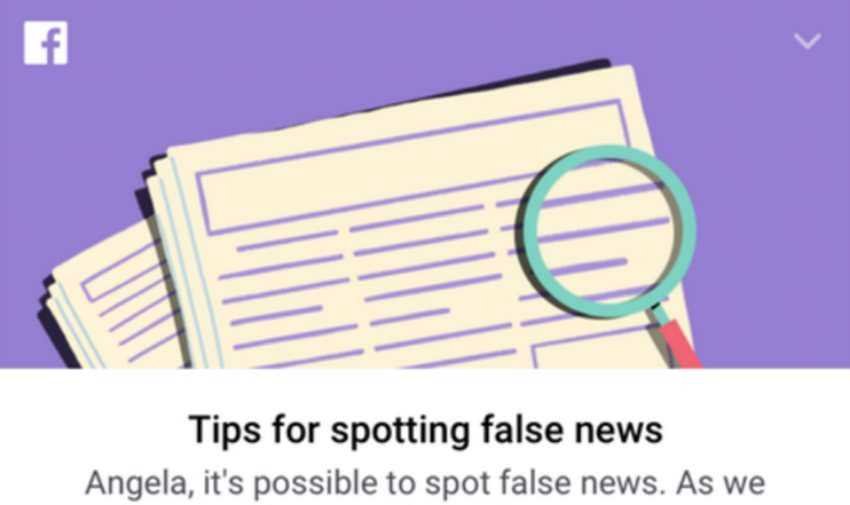Facebook seems to have taken steps to detect fake news, but it also considers it important to educate users on how to avoid them.
The company began rolling out a warning at the top of the News Feed that it calls “Tips for Spotting Fake News.” The warning will obviously start appearing several times during the duration of the coming days. 
Clicking this will take you to a Facebook support page with very useful common sense tips:
Be Wary of Titles: False news often has catchy titles in capitals and / or exclamations. If you think the title sounds unbelievable it probably is.
Look carefully at the URL: A false or a plausible URL can be a warning sign of fake news. Many fake news sites imitate authentic news sources by making small changes to the URL they use. You can go to the site and compare the URL with the authentic sources.
Investigate the source: Make sure the story is written from a source you trust. If the story comes from an unknown page, check "About" to learn more.
Check for unusual formatting: Many false news sites publish articles with spelling or syntax errors. Investigate carefully if you see these signs.
Review the photos: False news contains pictures or videos that have been edited. Sometimes the photo may be authentic, but you do not know where it came from and why it was taken. You can search for the photo on Google to see where it came from.
Check dates: The false news dates do not make sense, or an event that has changed.
Check them out data: Check the columnist's sources to confirm the accuracy of the story. A lack of evidence or anonymous expert reporting may indicate a fake news.
Look for other such news. If there is no other page stating the same story, the article may be fake. If the story is mentioned by many other pages you trust, it is more likely to be true.
Is the story somewhat funny? Sometimes in false news it's hard to distinguish whether they are humorous or satirical. Check out if the source is known for parody articles, and if the story and tone of the story show that it was posted only for fun.
Some stories are deliberately false: Think critically about the stories you read.
To mention that although the above is a very good start for detecting fake news, it is not a panacea, which is why Facebook is trying to deal with the fake news epidemic in other ways.





